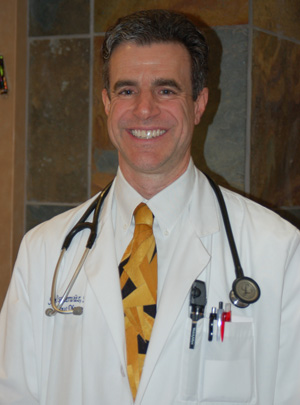Q: Is it the flu or is it more serious?

Dr. Steven Oscherwitz, infectious disease specialist
Cardon Children’s Medical Center
A: In the fall and winter months, parents can almost guarantee that their child is going to, at some time, have “the sniffles.” Most often, flu-like symptoms such as coughs, fever, sneezing and wheezing represent just that—the flu. However, for some children, especially younger children and infants, that flu could actually be Respiratory Syncytial Virus or RSV.
RSV is a viral disease of the lungs that can affect people of any age.
RSV infections can range from a very mild illness to serious lower respiratory tract infections, including pneumonia. It is the leading cause of lower respiratory tract illness in infants and young children. RSV infections in premature babies less than 6 months old and in infants with chronic lung, heart, or immune problems are most likely to be severe and lead to death.
For normally healthy children, RSV can lead to more serious infections such as bronchiolitis or pneumonia. Bronchiolitis is inflammation and swelling in the smallest tubes of the lungs. Bronchiolitis from RSV can limit the amount of air that a child can breathe, as well as causing wheezing and coughing. Pneumonia is a general term that refers to an infection of the lungs. Pnuemonia can also cause wheezing and coughing, as well as fever, chills and chest pain.
If your child is exhibiting any of these symptoms, take them to your pediatrician or emergency physician right away. There are blood tests for RSV infection, but the diagnosis is usually based on symptoms and time of year.
Once diagnosed, most children recover in one to two weeks, but about one in one hundred kids will need to go to the hospital for bronchiolitis or pneumonia. A child hospitalized with RSV might require a ventilator machine to breathe and receive an intravenous medicine called ribavirin in the hospital.
People can get RSV infection by:
• Breathing in droplets after an infected person has coughed
• Hand-to-mouth contact after touching an infected person
• Hand-to-mouth contact with a surface that an infected person has touched or coughed on
There is currently no effective vaccine for RSV. The best ways to prevent the spread of respiratory viruses like RSV are to cover coughs and sneezes and to wash hands often and well during the day.
